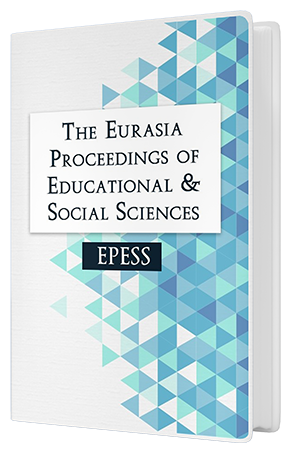USING STEM INTEGRATED APPROACH TO NURTURE STUDENTS’ INTEREST AND 21ST CENTURY SKILLS
Keywords:
21st century skills, Po-PBL, STEM education, project based learning, problem based learning.digital age literacy, ınventive thinking, effective communication, high productivity, spiritual valuesAbstract
This study aimed to identify the changes of 21st century skills among students after participating in integrated Science, Technology, Engineering and Mathematic (STEM) education programme. The learning activities in this programme applying Project Oriented Problem Based Learning approached as a fundamental pedagogy. A total of 125 secondary school students age 13-14 from four different zone of FELDA regions were involved as respondents. This study employed one group quasi-experimental and survey design to identify student’s 21st century skills before and after the programme. The data were analyzed using SPSS 21.0 for descriptive analysis, which later followed by inferential analysis to compare the means (t-test) between pre and post groups. The findings from this study revealed that, the level of 21st century skills among students significantly increase. Interestingly, one of the 21st century skills components namely ‘high productivity skills’ shows positive changes, from moderate to high level skills. The outcome of this study provide evidence that the application of Po- PBL in STEM education could help students to enhance their 21st century skills by learning how to solve the real world problems based on the authentic and real life experience through project work.Downloads
Published
Issue
Section
License
Copyright (c) 2016 The Eurasia Proceedings of Educational and Social Sciences

This work is licensed under a Creative Commons Attribution-NonCommercial-ShareAlike 4.0 International License.
The articles may be used for research, teaching, and private study purposes. Any substantial or systematic reproduction, redistribution, reselling, loan, sub-licensing, systematic supply, or distribution in any form to anyone is expressly forbidden. Authors alone are responsible for the contents of their articles. The journal owns the copyright of the articles. The publisher shall not be liable for any loss, actions, claims, proceedings, demand, or costs or damages whatsoever or howsoever caused arising directly or indirectly in connection with or arising out of the use of the research material. All authors are requested to disclose any actual or potential conflict of interest including any financial, personal or other relationships with other people or organizations regarding the submitted work.




